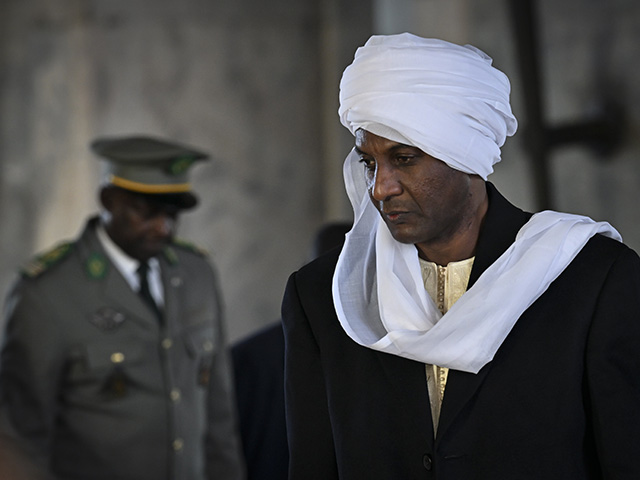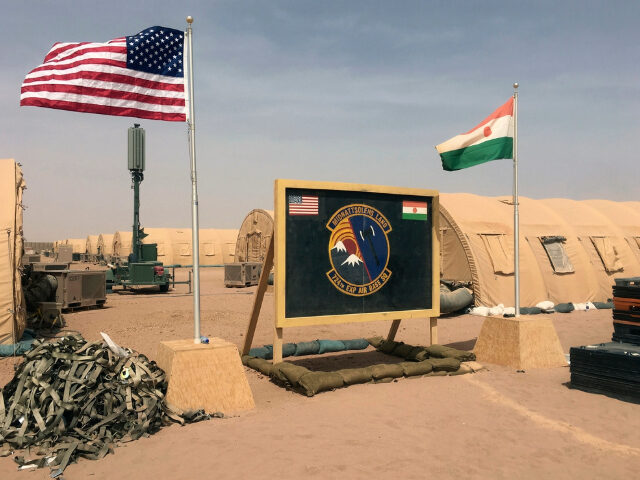The U.S. and Niger issued a joint statement on Sunday that set a deadline of September 15 for the withdrawal of all U.S. forces. The departing American troops leave behind a $100-million military base built to support counter-terrorism operations in the Sahel region.
The disposition of Airbase 201 in Niger’s city of Agadez was left unclear in the joint statement, which held out hopes that the U.S. and Niger might be able to work on “issues of mutual interest” in the future.
In a conference call with reporters on Sunday afternoon, a senior Defense Department official said the departing American forces would bring “sensitive equipment, lethal equipment, [and] hazardous equipment” with them.
“A lot of what we expect will be left behind is either things that are immobile or are going to cost a lot more for the United States to take out than they’re actually worth,” the official said.
However, he added that “ensuring that this withdrawal goes in as collegial and collaborative a manner as possible” was a top priority, and, since the U.S. military hopes it might still be able to operate out of Niger in some capacity in the future, it might end up leaving a good deal of equipment behind:
It’s really too early to tell exactly what we will be taking out. Obviously, the goal is to take as much as we can [and] protect the investment of the U.S. taxpayers, but there’s significant infrastructure, including the air base at Agadez [and] the air base — or our part of it — at Niamey that we’re not obviously going to be able to take with us.
Later in the conference call, the official admitted that the Biden administration has no idea how many Russian soldiers have been deployed to Niger, where they are located, or if they have been granted access to the military base facilities constructed at U.S. taxpayers’ expense.
“I don’t think that this is a situation like we’ve seen in other countries in which the counter-terrorism responsibilities will be turned over to a Wagner or a Russian-type entity. First off, I think the Nigerien military is too capable for that,” he said, referring to the Russian mercenary outfit that has dispatched about a hundred personnel to Niger at the request of the junta.
“The Nigeriens committed to a number of things, including the ongoing protection of U.S. forces,” another senior U.S. defense official said on Monday. “We have a lengthy history with them going back well over a decade, and working with them over the course of these discussions proved…that that relationship is very strong.”
These optimistic comments were difficult to reconcile with public pronouncements from Nigerien officials over the past few weeks. Prime Minister Ali Mahaman Lamine Zeine gave an interview on May 14 in which he slammed the “condescending tone and lack of respect” from Biden administration officials during negotiations to keep U.S. forces in Niger.

Prime Minister of Niger Ali Mahamane Lamine Zeine (Ismail Kaplan/Anadolu via Getty Images)
While Sunday’s joint statement praised the “joint sacrifices of Nigerien and U.S. forces in the fight against terrorism,” Zeine said that American troops in Niger were not doing enough to protect his country from terrorists, presumably because the Biden administration disapproved of the coup that brought him to power and was angry at the junta for allegedly doing business with Iran and Russia.
Bill Roggio, editor of the Long War Journal for the Foundation for Defense of Democracies (FDD), told Voice of America News (VOA) that the Biden administration’s withdrawal from Niger leaves counter-terrorism operations in “complete disarray” and intelligence gathering “practically at zero.”
“These are some of the most dangerous areas in the world. These countries are in dire threat of being overrun by jihadist groups,” Roggio said of the Sahel region.
A U.S. defense official told VOA that “basically every flight” from the two bases occupied by U.S. troops must now be approved by the junta, which began “delaying and canceling” U.S. military flights in April.

A man holds up a sign demanding that soldiers from the United States Army leave Niger without negotiation during a demonstration in Niamey on April 13, 2024. (AFP via Getty Images)
Negotiations between U.S. and Nigerien military officials last week were apparently difficult, as the talks were originally scheduled to conclude on Thursday but continued into Friday. The defense official who conducted the Sunday conference call mentioned that the Nigeriens were “very protective of their ability to talk to other nations,” which suggests they were not receptive to U.S. inquiries about their dealings with the Russians and Iranians.

COMMENTS
Please let us know if you're having issues with commenting.